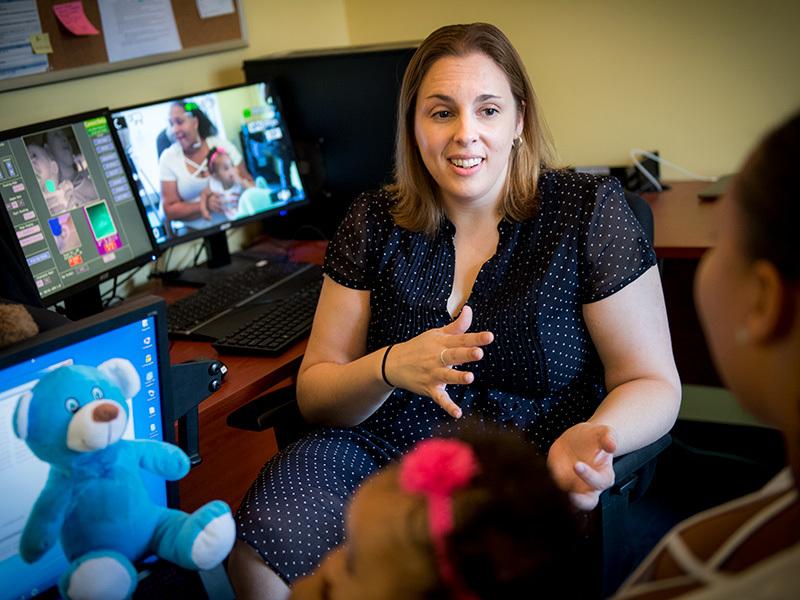NIH awards Tulane researchers $1.9 million to study how babies learn
The National Institutes of Health has awarded a $1.9 million grant to Tulane University researchers to study how infants orient their attention in the early stages of development and how it may affect their learning.
Lead investigator Julie Markant, assistant professor of psychology in the School of Science and Engineering, will study how infants pay attention to their caregivers and how these interactions relate to how children learn in early development.
“Caregivers are one of the most important sources of early learning input, particularly in the first couple of years,” said Markant, a faculty associate in the Tulane Brain Institute. “But we don't really know what the mechanism is underlying these learning processes from caregivers.”
Although a lot of research has been done about the influence of infant interactions with their caregivers on their social and emotional development, there are fewer studies on its influence on their cognitive development. “We are really trying to look at the development of these reward-based attention biases to caregivers, just in typical development,” said Markant, referring to how children learn to pay attention to their caregivers through the social and emotional rewards they receive. “I'm hoping that this will set us up to later on look at this in other contexts.”
Once there is a baseline of research examining these processes in typical development, researchers can also study atypical development, like if a child has autism spectrum disorder (ASD). Markant is particularly interested in how development might be changed if a primary caregiver has depression.
Since the children she is studying are so young, it takes some creativity to properly answer these questions.
“There's no way for us to know what is actually going on inside their minds,” said Markant, so she and her team use techniques like eye tracking to study babies without needing to give them instructions to follow, like researchers might for adults or older children.
At the ages Markant is studying, about 4-8 months, relationships between babies and their caregivers are still forming, but “there's a lot of research showing that the quality of these interactions predicts the developing attachment relationship,” she said.
Markant's research is part of an ongoing shift in psychology away from a traditional separation between social-emotional and cognitive development. She thinks that looking at this link between early cognitive development and the interactions babies have with their caregivers will likely illuminate the role that social and emotional development have in early learning. “I think the field is recognizing that to completely understand development as a whole, we need to understand them together,” she said.
Markant and her lab will be looking for participants in their study soon. If you or a family you know would like to get involved, visit the Tulane Learning and Brain Development Lab website for more details.
This research will be funded by the Eunice Kennedy Shriver National Institute of Child Health & Human Development under award No. R01HD108325.

